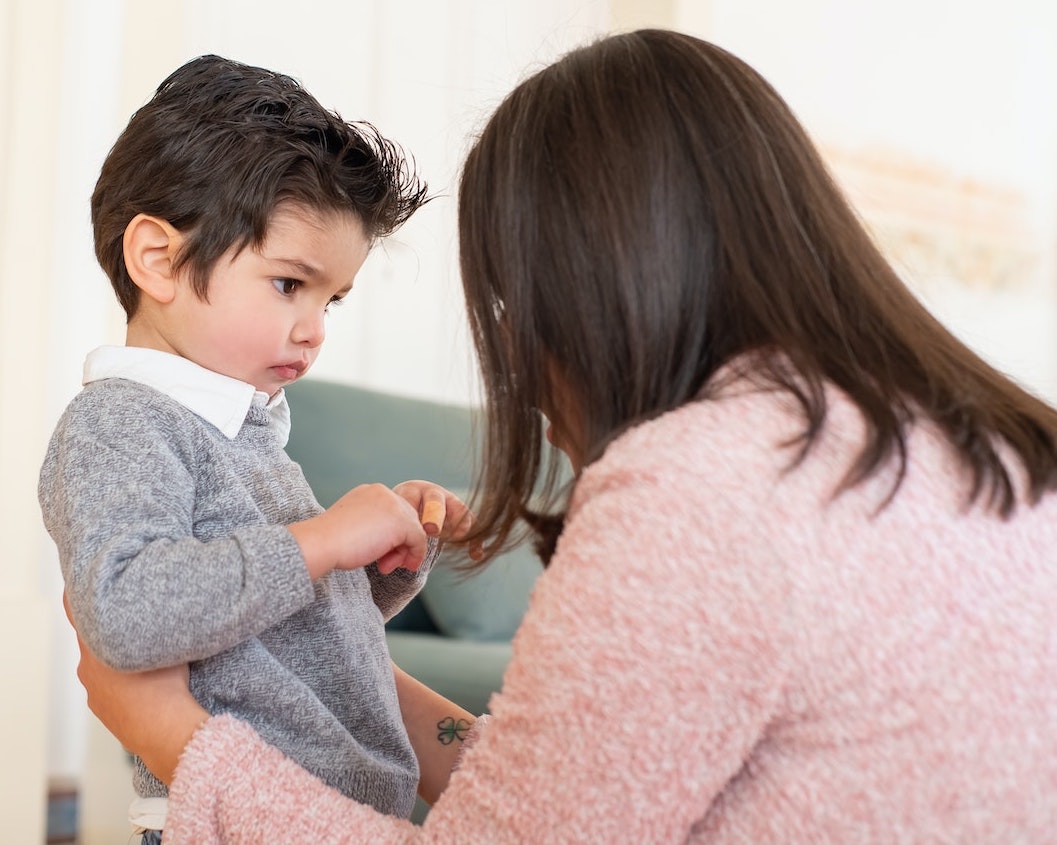Parents and teachers are sometimes afraid to talk to young children about death. ‘They’re too young’ or ‘They won’t understand’ are a few of the justifications to avoid speaking about this topic. The fear of talking to young children about death is unfounded, and is based on our own adult discomfort about the subject. In fact, young children are extremely resilient and capable of verbally expressing their emotions about a loved one’s passing.
The rate of emotional development is unique to each child. In general, the age between three and five is when children start to use words to describe their feelings. The kindergarten age is when a child’s verbal expression of emotions really begin to blossom. According to WebMD discussing preschooler emotional development:
‘…Empathy also begins to emerge around age 4…By age 5, your child has made leaps and bounds in their emotional development. They’ve gotten much better at regulating their emotions, and they talk about their feelings easily.’
Young Children Are Capable of Expressing Their Emotions About Death

I want to share a poignant anecdote that clearly illustrates a child expressing emotions about death. In my WhatsApp group for bereaved parents, I was amazed as I read a post from a mother who described her daughter’s recent experience in a kindergarten day camp. The teacher asked the children:
‘Have you ever lost anything that you really want to find?’. The little girl replied ‘Yes, my brother.’
Clearly, at such a tender age, this child is in touch with her feelings, and isn’t afraid to share them.
This doesn’t mean that a young child fully understands the permanence of death. They may think that although the person is gone, they can somehow ‘wish’ them to come back. A child may be afraid that he or she will be ‘gone’ too, and needs reassurance that they’re safe. An older child, say eight years and older, understands death is a one way trip. Issues of anger or guilt sometimes set in. A child feels it’s their fault the person died, especially if the person is a parent or sibling.
When a parent or teacher is uncomfortable addressing a child’s feelings and concerns about death, it behooves them to seek counseling so that they know how to properly respond. Some children talk freely about a death in the family, whereas others are quiet and don’t wish to attract attention to themselves. Each child is different, and it’s important that we not only address the topic of death, but do so in an age appropriate manner.
What to Say to A Child When Someone Dies

Cleveland Clinic posts brief guidelines on how to talk to children about death:
- Keep the explanation as simple as possible
- Be honest, using words and phrases that the child can understand
- Answer the child’s questions as best you can
- Let the child decide on how much he or she wants to express their feelings
- Make the child feel safe
- Talk often about the departed person
- If you believe in G-d, talk about Him too
When our first grandchild Ava was born, our son Jacob enjoyed giving her presents and playing with her. Jacob passed away when Ava was three years old, and she really doesn’t remember him. However, her parents and I talk to her about Uncle Jacob and show her pictures of him. Now that she’s seven, she has a better understanding of why Uncle Jacob isn’t here. Once, she asked why he’s not here with tears in her eyes. We sat and talked about him for a while. Our talk provided a positive emotional release for both of us.
Talking about death helps both children and adults grieve in a healthy way. It also lessens the probability that a death experienced when a child is young will have a negative affect on them later on.
Death Wasn’t Supposed to Be a Part of Life

When G-d created the universe and everything in it, death wasn’t part of the picture. People were supposed to live forever. Death came into the world only after Adam and Eve ate from the forbidden fruit. At the giving of the Torah on Mount Sinai death departed, only to return after the debacle of the Golden Calf.
Because we all come from the first man and woman, the concept of dying and death is wired into our spiritual DNA. We instinctively know we’re not going to live forever. After about the age of three, when a child realizes that his or her parents aren’t G-d, the concept of mortality takes root in a child’s active consciousness.
As for a young child believing that they can ‘wish’ a person back, they also instinctively know that death isn’t really permanent. When G-d says the time is right, we’ll be reunited with our loved ones again, hugging and kissing them. As the prophet says:
‘…He will eliminate death forever, and G-d will wipe the tears from every face…’ (Isaiah, 25:8)
May it be soon.

Leave a comment